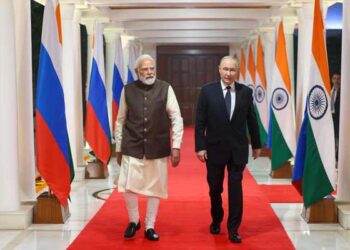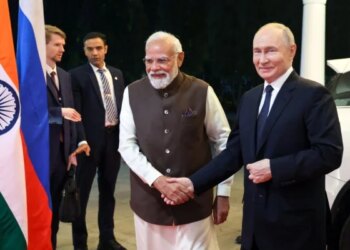Select Language:
- Opposition and critics claim widespread election rigging is skewing results.
- The Election Commission of India denies these allegations — a first in the country’s history.
- Rahul Gandhi demands the ECI release digital voter lists for auditing purposes.
NEW DELHI: The Election Commission of India, traditionally seen as the neutral guardian of the world’s largest democracy, now faces unprecedented questions about its impartiality and independence.
Opposition figures and critics have accused the election process of being manipulated on a large scale, affecting poll outcomes. The ECI strongly denies these accusations — a record first in India’s history.
Leading this criticism is Rahul Gandhi, the opposition leader in India’s parliament, who has previously raised concerns about the reliability of electronic voting machines. Now, Gandhi alleges the ECI is withholding access to digital voter records, claiming his team uncovered numerous errors after manually reviewing massive voter registration lists.
Allegations
Gandhi, 55, states that his party lost numerous seats in the 2024 parliamentary elections due to vote tampering.
The country’s largest-ever democratic exercise spanned over six weeks, involving roughly 1.4 billion people.
Gandhi asserts that the Election Commission manipulated voter rolls to favor Prime Minister Narendra Modi’s Bharatiya Janata Party (BJP). Modi, 74, secured a historic third term last year but fell just short of an outright majority.
The accusations point to various tactics, including multiple voting from individual addresses and irregularities linked to bogus households.
In a presentation on August 7, Gandhi highlighted a part of the country where his party narrowly lost as a clear example of election irregularities. He charged that over 100,000 counterfeit votes were cast through duplicate registrations, affecting an election result where his party was defeated by approximately 30,000 votes.
Gandhi calls for transparency, demanding the ECI release digital voter data so candidates and citizens can audit the records independently.
ECI’s Response
The ECI dismisses Gandhi’s claims as “misleading and false.”
India’s Chief Election Commissioner Gyanesh Kumar reaffirmed their commitment to constitutional duties, asserting, “We will never back down from our responsibilities.”
“Politics is attempting to use the Election Commission as a tool to target voters,” Kumar stated during a recent press conference.
The commissioner emphasized that anyone alleging election fraud must provide sworn proof or issue an apology, stating, “Either submit an affidavit or apologize to the nation — there’s no third option.”
Why Now?
Gandhi has embarked on a month-long “voter rights” campaign in key battleground states such as Bihar, drawing enthusiastic crowds since launching on August 17.
This comes ahead of elections scheduled in Bihar in October or November. Critics accuse the ECI of orchestrating “mass disenfranchisement,” after new voter registration rules required residents to submit proof of citizenship, a hurdle for many who lack such documentation.
The country’s top court recently approved using biometric ID cards for registration in Bihar, marking a shift in policy. Similar voter list updates—referred to as “Special Intensive Revision” (SIR)—are planned nationwide.
Gandhi denounces this process as “the final conspiracy,” claiming it results in thousands of dead voters being removed and legitimate voters being disqualified—further undermining electoral integrity. Verification is expected to conclude by September 25, with an official list published shortly afterward.
The ECI defends the revision, stating it aims to prevent foreign-registered illegal immigrants, especially among undocumented Bangladeshi migrants, from voting fraudulently.
Controversy grew when the ECI replaced detailed voter records with scanned images that are less searchable, causing concerns about the detection of anomalies and possible errors.







